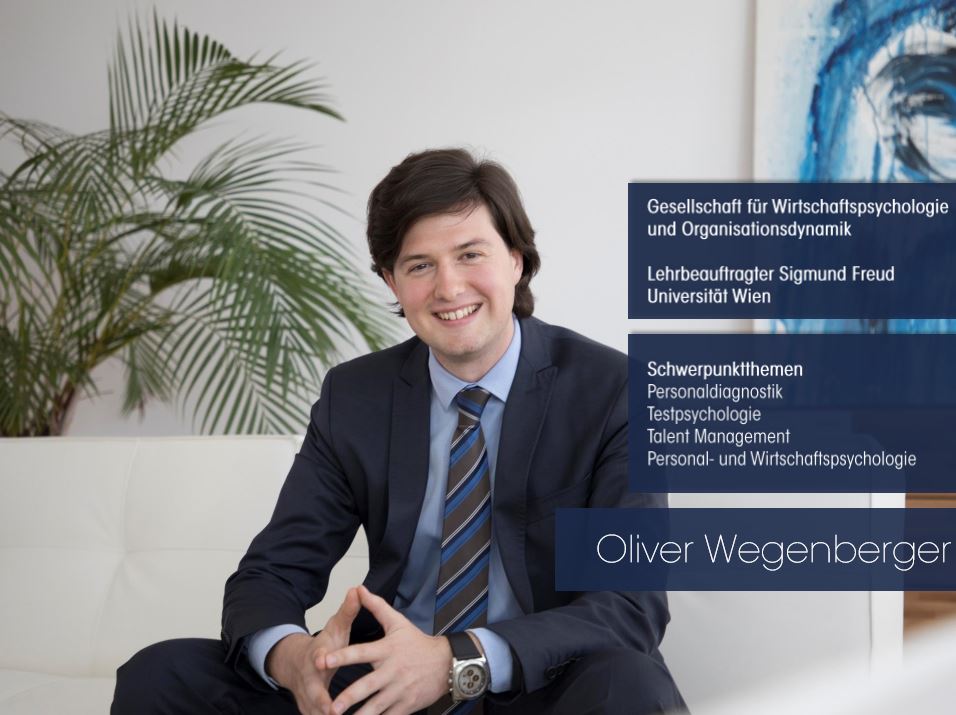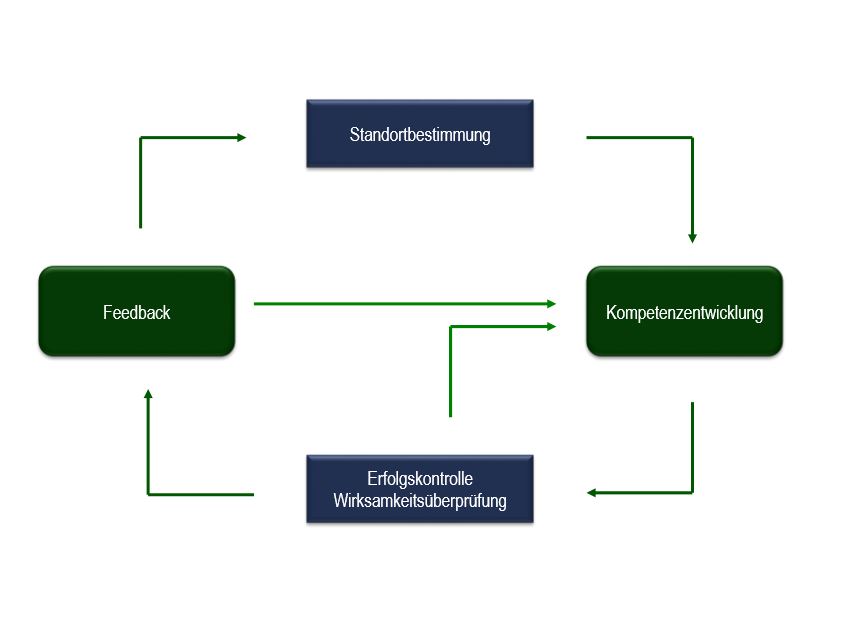
Agile-based Competence Management – Learn and evolve with change
Site Assessment in the context of agile management development
Authors: Josef Wegenberger, Oliver Wegenberger
Society for Business Psychology and Organizational Dynamics


Let’s put ourselves in the shoes of a company from the 1980s. TECHNIK AG is a typical large company with several thousand employees. The order situation is stable, the personnel is well qualified for the tasks through school and professional training. All leaders are “masters of their trade”, have essentially all the necessary knowledge and are thus predestined to act as “superiors” in the respective department. Personnel development is limited to training and continuing education, and even this is the exception rather than the rule. Discussions with employees are event-driven, and structured employee appraisals do not actually take place in practice. Further training events for very specific target groups are “prescribed” and centrally controlled.

In the mid-1980s, training needs are surveyed – if at all – by well thought-out training needs surveys using questionnaires sent to all managers. The human resources department evaluates these and prepares a preliminary training budget. Budget planning is then decided for the entire company; changes and budget reductions are reported back to the divisions and departments. After this, the specific training and development measures are planned and implemented by the end of the year. The remaining planned measures are postponed to the next year or are no longer current. Short-term training needs are covered by reallocations or cannot be realized.
The case study is constructed. However, it shows the cycle of two to three years from training needs assessment to implementation and evaluation.

Let’s switch to the present.
Our case study – TECHNIK AG is still operating successfully in the market. It is now divided into numerous subsidiaries and cooperates with numerous partner companies and start-ups.
The environment is VUCA
- “Volatility”
- “Uncertainty”
- “Complexity
- “Ambiguity”
The year 2020, with the COVID pandemic, has once again reinforced the rapid pace and dynamics of changed and changing conditions.
Statements, such as “speed kills” and “the big will not eat the small, but the fast will eat the slow”[1], are no longer slogans [but] reality.
[1] Based on Eberhard von Kuenheim [*1928] Chairman of the Board of Management [1970-1993] and Chairman of the Supervisory Board [1993-1999] of BMW AG.
Agile working methods – Learn and evolve with change
Rapid and flexible cycles in target management [agreement – delegation – implementation – review / evaluation], virtual leadership, networking, etc. are changing the world of work and thus teamwork management at all levels and in all areas. TECHNIK AG has already converted performance management to quarterly cycles and coordination takes place in “daily standings”, weekly and monthly team meetings and individual discussions between leaders and team members.
Talent and competence management is still lagging behind somewhat and still opts for the more classic methods of assessing the current situation – apart from a few exceptions and “experiments” – by means of standardized appraisal interviews and assessment centers or potential analyses. However, all those responsible in the company are aware that agile talent and competence management will become a critical factor for success in the future.
“Agile and flexible approach” is sometimes confused in practice with “implementation without planning”.
Exactly the opposite is the case. Only through precise planning as well as a goal-oriented and consistent approach can the benefits of agile management be exploited.
Target management must not be a “one-time” thing at the beginning of the fiscal year”, but must be an integral part of “daily business” at all levels.
This can be applied equally to agile leadership development.
However, the application of the various, small-scale methods of competence development, such as micro-learning, learning nuggets, e-learnings, webinars, intensive coaching elements, etc., requires a continuous assessment of the current situation. This includes the competencies relevant to the requirements [personal, communicative, methodological, special, technical and management competencies].
The “call” for targeted development of competencies
is also due to the fact that the investment costs are to be used efficiently and the “return on investment” is to be made at the earliest possible point in time.
The assessment of the current situation is the basis for recommendations for further development and clear development target agreements, which – analogous to target performance management – are evaluated, for example, on a quarterly basis:

The graphic shows the control loop of agile competence management, with the starting point of the site assessment (Standortbestimmung) in the form of the agile competence evaluation. (Kompetenzentwicklung) The result of the competence target/actual comparison (Erfolgskontrolle) leads to recommendations for further development. (Feedback) These are to be converted into concrete learning objectives, which form the basis of competence development
An essential component of the Continuous Learning Process
is the monitoring of the success and effectiveness of the learning content. The methods used for this purpose include self-assessments, specific test procedures, work samples, and even [interim] examinations as part of training courses. The feedback between manager and team member is the starting point for further competence evaluation and the continuous learning process can start again.
The role of the manager and their goals in this competence development process are to be adapted to agile leadership development:
- “Strengthen” the employees’ “strengths”.
- “Weaken” the “weaknesses” of the employees [i.e.: raise improvement potentials and neutralize deficits].
- Developing employees in such a way that the actual competence profile ideally matches the target competence profile
- Increased assumption of responsibility through competence development
- Increasing flexibility
- Increasing quality
- Ensuring team-relevant competencies to achieve agreed team goals
The employees’ self-responsibility for their own development gains in importance:
The role image of team members continues to develop “from employees to co-entrepreneurs“. For the area of competence development, this means increased self-responsibility for their own development and career. Continuous learning will [have to] become a matter of course for all employees.
Goals of employees in the context of their own personal development:
- Recognize, promote and implement own talents, strengths.
- Foundations for own career development
- Flexibility and mobility
- Ensuring job-relevant competencies to achieve agreed goals
- Adaptation of job-relevant competencies and qualifications to the requirements of the task area
- Assumption of extended responsibility, more decision-making and action powers
- Securing and increasing standard of living

